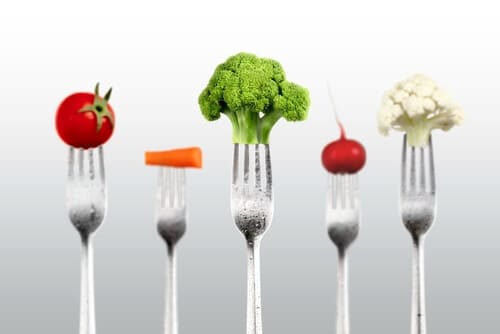The anti-inflammatory diet may have a positive impact on fertility, as chronic inflammation can negatively impact reproductive health. In this article we are going to explore what the anti-inflammatory diet is, how it works, and what foods and nutrients should be included in the diet to improve fertility.
What is the anti-inflammatory diet?
The anti-inflammatory diet focuses on eating foods that reduce inflammation in the body. Chronic inflammation can damage body tissue and cause diseases, including autoimmune diseases, cardiovascular diseases and certain types of cancer. Additionally, inflammation can negatively affect fertility as it can disrupt hormonal balance and affect sperm quality and the eggs.
The anti-inflammatory diet is based on the elimination or reduction of pro-inflammatory foods and the inclusion of anti-inflammatory foods. Pro-inflammatory foods include those that are high in saturated fats, trans fats, refined sugars and chemicals. Anti-inflammatory foods include those that are rich in nutrients, such as vitamins, minerals, and antioxidants.
How does the anti-inflammatory diet work?
The anti-inflammatory diet can help reduce inflammation in the body and improve reproductive health in different ways. First, the diet can help reduce oxidative stress, which is a process that can damage the body's cells and negatively affect fertility. Anti-inflammatory foods contain antioxidants, which can neutralize free radicals and reduce oxidative stress.
Second, the anti-inflammatory diet can help improve the health of the immune system, which is important for reproductive health. Anti-inflammatory foods contain nutrients that can improve immune system function and reduce inflammation.
Third, the anti-inflammatory diet can help improve hormonal health. Anti-inflammatory foods contain nutrients that can help balance hormones and reduce inflammation that can affect hormone production.
What foods should be included in the anti-inflammatory diet to improve fertility?
Anti-inflammatory diet to improve fertility should include foods that are rich in nutrients and have anti-inflammatory properties.
If you are interested in following an anti-inflammatory diet to improve your fertility, here are some general guidelines to follow:
- Eat fresh, unprocessed foods: Fresh, unprocessed foods, such as fruits and vegetables, lean meats, fish, and nuts, are rich in nutrients and antioxidants that can help reduce inflammation. Limit or avoid processed foods, such as fast food, packaged foods, and frozen foods.
- Choose healthy fats: Healthy fats, such as those found in olive oil, nuts, seeds, and fatty fish such as salmon, contain fatty acids. omega-3 and omega-6 which are beneficial in reducing inflammation.
- Increase consumption of fruits and vegetables: Fruits and vegetables are rich in antioxidants, vitamins and minerals that can help reduce inflammation. Try to eat a variety of brightly colored fruits and vegetables to get a variety of nutrients.
- Eat foods rich in fiber: Fiber can help reduce inflammation by maintaining intestinal health and preventing the growth of harmful bacteria. Foods rich in fiber include fruits, vegetables, legumes, and whole grains.
- Limit sugar intake: Sugar and processed foods can contribute to inflammation. Limit consumption of sugary foods and sweetened drinks.
- Reduce consumption of red and processed meat: Red and processed meat can be high in saturated fat and cholesterol, which can contribute to inflammation. Try to limit your consumption of red and processed meat and choose lean meats such as chicken, turkey or fish instead.
- Drink plenty of water: Staying hydrated is important for maintaining good overall health and reducing inflammation. Try to drink at least eight glasses of water a day.
- Incorporates anti-inflammatory herbs and spices: Some herbs and spices, such as turmeric, ginger, garlic and oregano, have anti-inflammatory properties. Add these herbs and spices to your meals for additional benefits.
Anti-Inflammatory Fertility Diet Menu Sample
Breakfast:
- Oatmeal with fresh fruits and nuts
- Fruit and Vegetable Smoothie with Almond Milk and Whey Protein
Lunch:
- Quinoa salad with avocado, spinach and cherry tomatoes
- Grilled chicken with steamed vegetables
Dinner:
- Baked fish with asparagus and roasted sweet potatoes
- Stir-fried tofu with broccoli, peppers and onion
Snack:
- Fresh fruit with nuts or nut butter
- Greek yogurt with fresh fruits and granola

